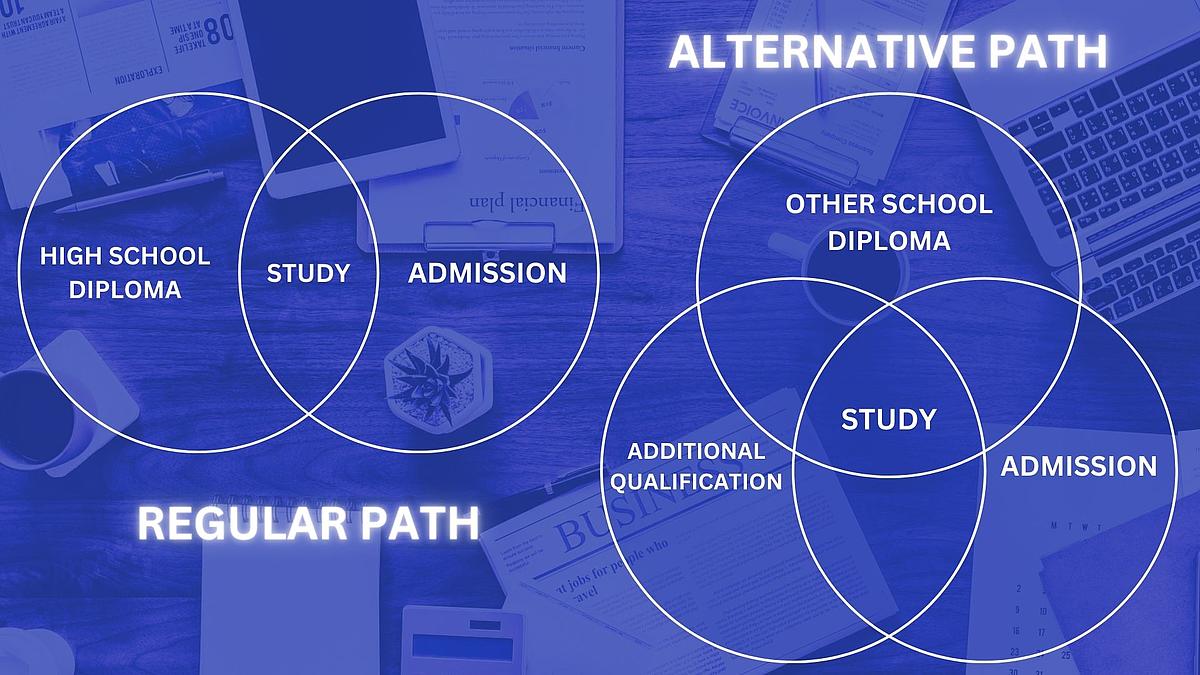How to study without a high school diploma and an apprenticeship
First of all, it depends on the school-leaving qualification, even without an Abi. With a specialized baccalaureate or a specialized university entrance qualification, you automatically have a university entrance qualification. However, this is usually subject-specific and only valid at certain universities.
A general, i.e. not subject-specific, university entrance qualification can also be obtained without a high school diploma. This requires a degree from a technical school or a technical academy. At the university of your choice, you will then have to prove your suitability for the course of study in an interview or other tests that show that you are up to the requirements of a course of study.
Each federal state has its own regulations and requirements. In addition, each university can often determine its own tests. These can vary from a simple aptitude interview, to an examination, to a trial study.



















